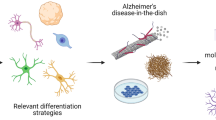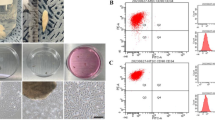Abstract
Astrocytes, the most prevalent cells in the central nervous system (CNS), can be transformed into neurons and oligodendrocyte progenitor cells (OPCs) using specific transcription factors and some chemicals. In this study, we present a cocktail of small molecules that target different signaling pathways to promote astrocyte conversion to OPCs. Astrocytes were transferred to an OPC medium and exposed for five days to a small molecule cocktail containing CHIR99021, Forskolin, Repsox, LDN, VPA and Thiazovivin before being preserved in the OPC medium for an additional 10 days. Once reaching the OPC morphology, induced cells underwent immunocytofluorescence evaluation for OPC markers while checked for lacking the astrocyte markers. To test the in vivo differentiation capabilities, induced OPCs were transplanted into demyelinated mice brains treated with cuprizone over 12 weeks. Two distinct lines of astrocytes demonstrated the potential of conversion to OPCs using this small molecule cocktail as verified by morphological changes and the expression of PDGFR and O4 markers as well as the terminal differentiation to oligodendrocytes expressing MBP. Following transplantation into demyelinated mice brains, induced OPCs effectively differentiated into mature oligodendrocytes. The generation of OPCs from astrocytes via a small molecule cocktail may provide a new avenue for producing required progenitors necessary for myelin repair in diseases characterized by the loss of myelin such as multiple sclerosis.





Similar content being viewed by others
Data Availability
No datasets were generated or analysed during the current study.
References
Brüstle O, Jones KN, Learish RD, Karram K, Choudhary K, Wiestler OD, McKay RD (1999) Embryonic stem cell-derived glial precursors: a source of myelinating transplants. Science 285(5428):754–756. https://doi.org/10.1126/science.285.5428.754
Cao S, Yu S, Li D, Ye J, Yang X, Li C, Pei D (2018) Chromatin Accessibility Dynamics during Chemical induction of pluripotency. Cell Stem Cell 22(4):529–542e525. https://doi.org/10.1016/j.stem.2018.03.005
Cheng L, Hu W, Qiu B, Zhao J, Yu Y, Guan W, Pei G (2014) Generation of neural progenitor cells by chemical cocktails and hypoxia. Cell Res 24(6):665–679. https://doi.org/10.1038/cr.2014.32
Cheng L, Gao L, Guan W, Mao J, Hu W, Qiu B, Pei G (2015) Direct conversion of astrocytes into neuronal cells by drug cocktail. Cell Res 25(11):1269–1272. https://doi.org/10.1038/cr.2015.120
Dehghan S, Hesaraki M, Soleimani M, Mirnajafi-Zadeh J, Fathollahi Y, Javan M (2016) Oct4 transcription factor in conjunction with valproic acid accelerates myelin repair in demyelinated optic chiasm in mice. Neuroscience 318:178–189. https://doi.org/10.1016/j.neuroscience.2016.01.028
Douvaras P, Fossati V (2015) Generation and isolation of oligodendrocyte progenitor cells from human pluripotent stem cells. Nat Protoc 10(8):1143–1154. https://doi.org/10.1038/nprot.2015.075
Ehrlich M, Mozafari S, Glatza M, Starost L, Velychko S, Hallmann AL, Kuhlmann T (2017) Rapid and efficient generation of oligodendrocytes from human induced pluripotent stem cells using transcription factors. Proc Natl Acad Sci U S A 114(11):E2243–e2252. https://doi.org/10.1073/pnas.1614412114
Esfandiari F, Fathi A, Gourabi H, Kiani S, Nemati S, Baharvand H (2012) Glycogen synthase Kinase-3 inhibition promotes proliferation and neuronal differentiation of Human-Induced pluripotent stem cell-derived neural progenitors. Stem Cells Dev 21(17):3233–3243. https://doi.org/10.1089/scd.2011.0678
Fancy SP, Chan JR, Baranzini SE, Franklin RJ, Rowitch DH (2011) Myelin regeneration: a recapitulation of development? Annu Rev Neurosci 34:21–43. https://doi.org/10.1146/annurev-neuro-061010-113629
Farhangi S, Dehghan S, Totonchi M, Javan M (2019) In vivo conversion of astrocytes to oligodendrocyte lineage cells in adult mice demyelinated brains by Sox2. Mult Scler Relat Disord 28:263–272. https://doi.org/10.1016/j.msard.2018.12.041
Franklin RJ (2002) Why does remyelination fail in multiple sclerosis? Nat Rev Neurosci 3(9):705–714. https://doi.org/10.1038/nrn917
Franklin RJ, Ffrench-Constant C (2008) Remyelination in the CNS: from biology to therapy. Nat Rev Neurosci 9(11):839–855. https://doi.org/10.1038/nrn2480
Gao L, Guan W, Wang M, Wang H, Yu J, Liu Q, Pei G (2017) Direct generation of human neuronal cells from adult astrocytes by small molecules. Stem Cell Rep 8(3):538–547. https://doi.org/10.1016/j.stemcr.2017.01.014
Ghasemi-Kasman M, Zare L, Baharvand H, Javan M (2018) In vivo conversion of astrocytes to myelinating cells by miR-302/367 and valproate to enhance myelin repair. J Tissue Eng Regen Med 12(1):e462–e472. https://doi.org/10.1002/term.2276
Goldman SA, Kuypers NJ (2015) How to make an oligodendrocyte. Development 142(23):3983–3995. https://doi.org/10.1242/dev.126409
Goldman SA, Nedergaard M, Windrem MS (2012) Glial progenitor cell-based treatment and modeling of neurological disease. Science 338(6106):491–495. https://doi.org/10.1126/science.1218071
Gross RE, Mehler MF, Mabie PC, Zang Z, Santschi L, Kessler JA (1996) Bone morphogenetic proteins promote Astroglial Lineage commitment by mammalian Subventricular Zone Progenitor cells. Neuron 17(4):595–606. https://doi.org/10.1016/S0896-6273(00)80193-2
Honarvar F, Hojati V, Zare L, Bakhtiari N, Javan M (2022) Ursolic acid enhances myelin repair in adult mice brains and stimulates exhausted oligodendrocyte progenitors to Remyelinate. J Mol Neurosci 72(10):2081–2093. https://doi.org/10.1007/s12031-022-02059-x
Hu W, Qiu B, Guan W, Wang Q, Wang M, Li W, Pei G (2015) Direct Conversion of Normal and Alzheimer’s Disease Human fibroblasts into neuronal cells by small molecules. Cell Stem Cell 17(2):204–212. https://doi.org/10.1016/j.stem.2015.07.006
Huang H, Rubenstein JL, Qiu M (2021) Cracking the codes of cortical glial progenitors: evidence for the common lineage of astrocytes and oligodendrocytes. Neurosci Bull 37(4):437–439. https://doi.org/10.1007/s12264-021-00675-y
Inman GJ, Nicolás FJ, Callahan JF, Harling JD, Gaster LM, Reith AD, Hill CS (2002) SB-431542 is a potent and specific inhibitor of transforming growth factor-beta superfamily type I activin receptor-like kinase (ALK) receptors ALK4, ALK5, and ALK7. Mol Pharmacol 62(1):65–74. https://doi.org/10.1124/mol.62.1.65
Khazaei M, Ahuja CS, Fehlings MG (2017) Generation of oligodendrogenic spinal neural progenitor cells from Human Induced Pluripotent Stem cells. Curr Protoc Stem Cell Biol 42(2). d.20.21-22d.20.14
Kuhn S, Gritti L, Crooks D, Dombrowski Y (2019) Oligodendrocytes in development, myelin Generation and Beyond. Cells 8(11). https://doi.org/10.3390/cells8111424
Li X, Zuo X, Jing J, Ma Y, Wang J, Liu D, Deng H (2015) Small-molecule-driven direct reprogramming of mouse fibroblasts into functional neurons. Cell Stem Cell 17(2):195–203. https://doi.org/10.1016/j.stem.2015.06.003
Liu C, Hu X, Li Y, Lu W, Li W, Cao N, Zhang M (2019) Conversion of mouse fibroblasts into oligodendrocyte progenitor-like cells through a chemical approach. J Mol Cell Biol 11(6):489–495. https://doi.org/10.1093/jmcb/mjy088
Liu X, Li C, Li J, Xie L, Hong Z, Zheng K, Yang J (2022) EGF signaling promotes the lineage conversion of astrocytes into oligodendrocytes. Mol Med 28(1):50. https://doi.org/10.1186/s10020-022-00478-5
Mokhtarzadeh Khanghahi A, Satarian L, Deng W, Baharvand H, Javan M (2018) In vivo conversion of astrocytes into oligodendrocyte lineage cells with transcription factor Sox10; promise for myelin repair in multiple sclerosis. PLoS ONE 13(9):e0203785. https://doi.org/10.1371/journal.pone.0203785
Najm FJ, Lager AM, Zaremba A, Wyatt K, Caprariello AV, Factor DC, Tesar PJ (2013) Transcription factor-mediated reprogramming of fibroblasts to expandable, myelinogenic oligodendrocyte progenitor cells. Nat Biotechnol 31(5):426–433. https://doi.org/10.1038/nbt.2561
Pachenari N, Kiani S, Javan M (2017) Inhibition of glycogen synthase kinase 3 increased subventricular zone stem cells proliferation. Biomed Pharmacother 93:1074–1082. https://doi.org/10.1016/j.biopha.2017.07.043
Park S, Kim D, Jung YG, Roh S (2015) Thiazovivin, a rho kinase inhibitor, improves stemness maintenance of embryo-derived stem-like cells under chemically defined culture conditions in cattle. Anim Reprod Sci 161:47–57. https://doi.org/10.1016/j.anireprosci.2015.08.003
Petersen MA, Tognatta R, Meyer-Franke A, Bushong EA, Mendiola AS, Yan Z, Akassoglou K (2021) BMP receptor blockade overcomes extrinsic inhibition of remyelination and restores neurovascular homeostasis. Brain 144(8):2291–2301. https://doi.org/10.1093/brain/awab106
Stangel M, Kuhlmann T, Matthews PM, Kilpatrick TJ (2017) Achievements and obstacles of remyelinating therapies in multiple sclerosis. Nat Rev Neurol 13(12):742–754. https://doi.org/10.1038/nrneurol.2017.139
Su Z, Niu W, Liu ML, Zou Y, Zhang CL (2014) In vivo conversion of astrocytes to neurons in the injured adult spinal cord. Nat Commun 5:3338. https://doi.org/10.1038/ncomms4338
Wang S, Bates J, Li X, Schanz S, Chandler-Militello D, Levine C, Goldman SA (2013) Human iPSC-derived oligodendrocyte progenitor cells can myelinate and rescue a mouse model of congenital hypomyelination. Cell Stem Cell 12(2):252–264. https://doi.org/10.1016/j.stem.2012.12.002
Windrem MS, Nunes MC, Rashbaum WK, Schwartz TH, Goodman RA, McKhann G 2nd,., Goldman SA (2004) Fetal and adult human oligodendrocyte progenitor cell isolates myelinate the congenitally dysmyelinated brain. Nat Med 10(1):93–97. https://doi.org/10.1038/nm974
Yang N, Zuchero JB, Ahlenius H, Marro S, Ng YH, Vierbuchen T, Wernig M (2013) Generation of oligodendroglial cells by direct lineage conversion. Nat Biotechnol 31(5):434–439. https://doi.org/10.1038/nbt.2564
Zare L, Baharvand H, Javan M (2018) In vivo conversion of astrocytes to oligodendrocyte lineage cells using chemicals: targeting gliosis for myelin repair. Regen Med 13(7):803–819. https://doi.org/10.2217/rme-2017-0155
Zare L, Baharvand H, Javan M (2019) Trichostatin a promotes the Conversion of astrocytes to oligodendrocyte progenitors in a defined culture medium. Iran J Pharm Res 18(1):286–295
Zhang L, Yin JC, Yeh H, Ma NX, Lee G, Chen XA, Chen G (2015) Small molecules efficiently Reprogram Human Astroglial cells into functional neurons. Cell Stem Cell 17(6):735–747. https://doi.org/10.1016/j.stem.2015.09.012
Zhang M, Lin YH, Sun YJ, Zhu S, Zheng J, Liu K, Ding S (2016) Pharmacological reprogramming of fibroblasts into neural stem cells by Signaling-Directed Transcriptional activation. Cell Stem Cell 18(5):653–667. https://doi.org/10.1016/j.stem.2016.03.020
Zhao Y, Zhao T, Guan J, Zhang X, Fu Y, Ye J, Deng H (2015) A XEN-like state bridges somatic cells to pluripotency during Chemical Reprogramming. Cell 163(7):1678–1691. https://doi.org/10.1016/j.cell.2015.11.017
Funding
This study was supported by grants from Tarbiat Modares University and Royan Institute.
Author information
Authors and Affiliations
Contributions
MJ: Conceptualization; MSK, LZ, MJ: Methodology; MSK, LZ, MJ: Formal analysis and investigation; MJ, YF: supervising the experiments and providing the resources; MSK, MJ: Writing the draft manuscript; MJ: Funding acquisition.
Corresponding author
Ethics declarations
Ethical Approval
animal study protocols were approved by Tarbiat Modares University Committee for Animal Research (approval number: 95-52-9589).
Consent to Participate
Not applicable.
Consent for Publication
All authors confirmed the final version of manuscript.
Competing Interests
The authors declare no competing interests.
Additional information
Publisher’s Note
Springer Nature remains neutral with regard to jurisdictional claims in published maps and institutional affiliations.
Electronic Supplementary Material
Below is the link to the electronic supplementary material.
Rights and permissions
Springer Nature or its licensor (e.g. a society or other partner) holds exclusive rights to this article under a publishing agreement with the author(s) or other rightsholder(s); author self-archiving of the accepted manuscript version of this article is solely governed by the terms of such publishing agreement and applicable law.
About this article
Cite this article
Sharifi-Kelishadi, M., Zare, L., Fathollahi, Y. et al. Conversion of Astrocyte Cell Lines to Oligodendrocyte Progenitor Cells Using Small Molecules and Transplantation to Animal Model of Multiple Sclerosis. J Mol Neurosci 74, 40 (2024). https://doi.org/10.1007/s12031-024-02206-6
Received:
Accepted:
Published:
DOI: https://doi.org/10.1007/s12031-024-02206-6




